This Detroiter helped the Lions land Hall of Fame talent and is still talked about today
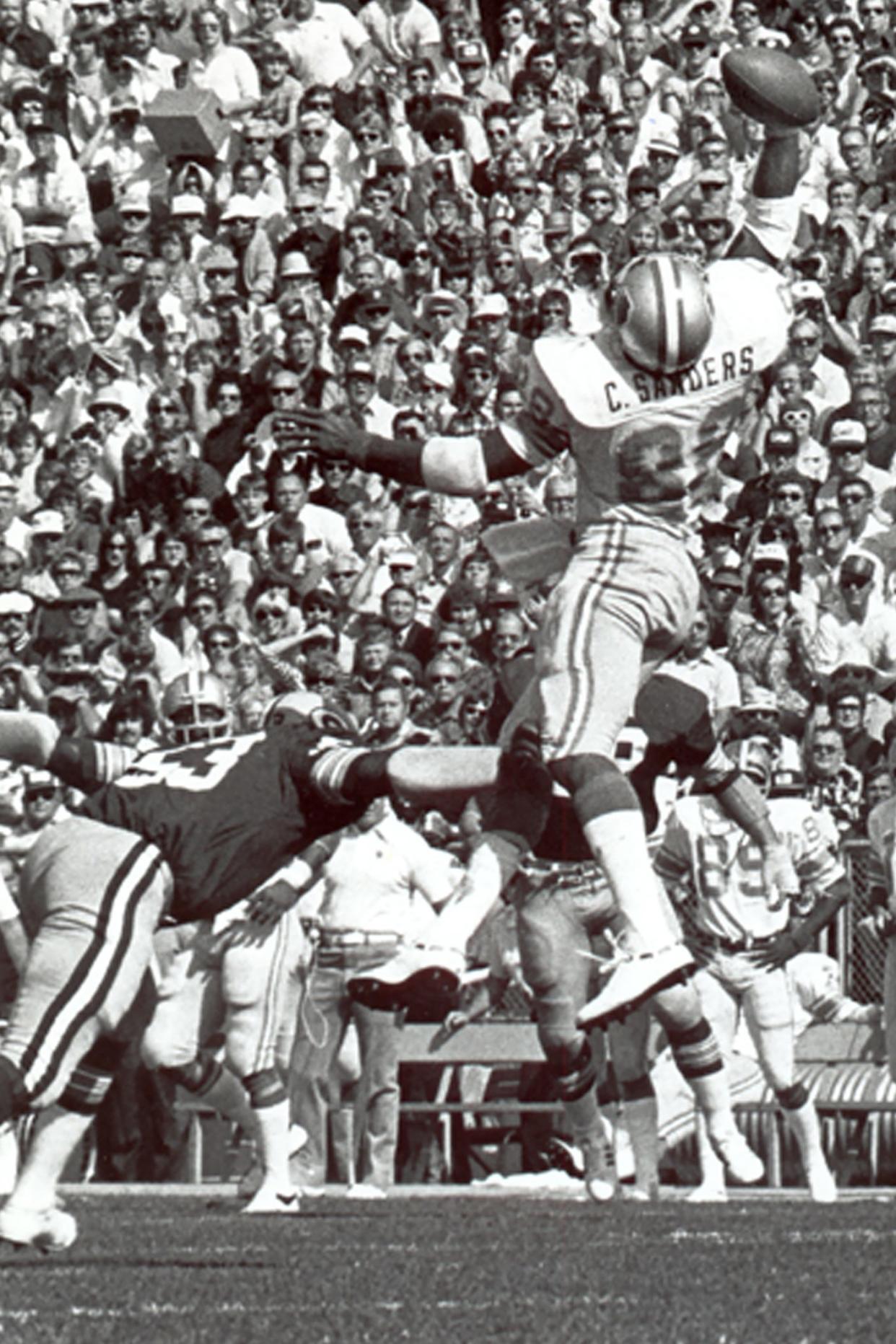
- Oops!Something went wrong.Please try again later.
- Oops!Something went wrong.Please try again later.
- Oops!Something went wrong.Please try again later.
The year was 1968. And after playing just five games in the National Football League, Detroit Lions rookie tight end Charlie Sanders already was beginning to demonstrate his value to the team.
During an era when NFL offenses focused primarily on the running game, Sanders still managed to haul in at least one reception in his first five games, including a five-catch performance in Week 3 against the Green Bay Packers. He also quickly earned his teammates’ respect as a skilled and committed blocker, which helped the Lions average 190 yards on the ground in the team’s three victories during that stretch, en route to a 3-2 record to start the season.
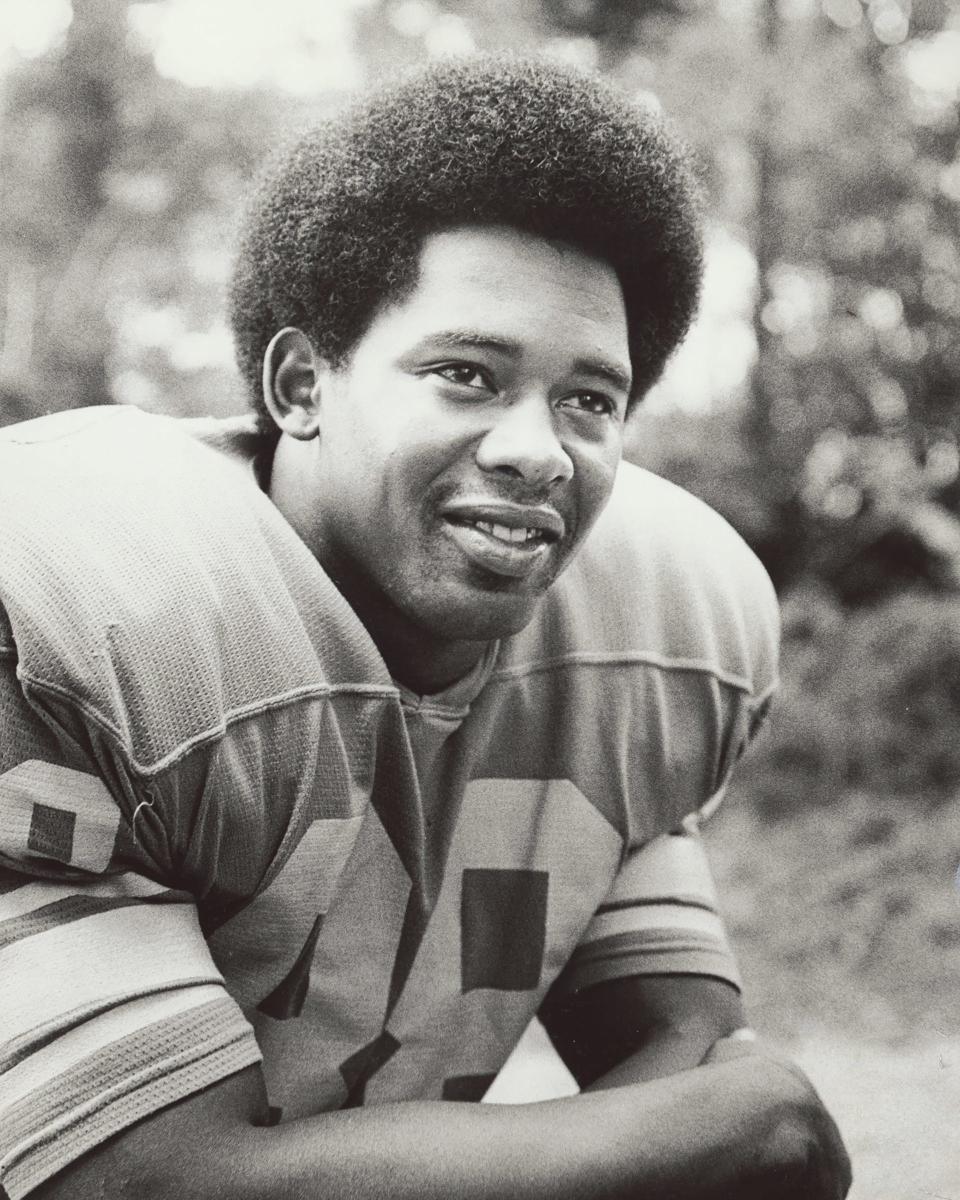
In Sanders, Lions fans at Tiger Stadium and spectators across the NFL were witnessing a talent who would blossom into a Pro Football Hall of Famer. However, there was one Detroiter who spotted Sanders’ potential before most — even before Sanders joined the Lions. And that Detroiter's recommendation weighed heavily in the Lions picking Sanders in the third round of the 1968 NFL Draft out of the University of Minnesota.
That Detroiter was Will Robinson (June 3, 1911-April 28, 2008).
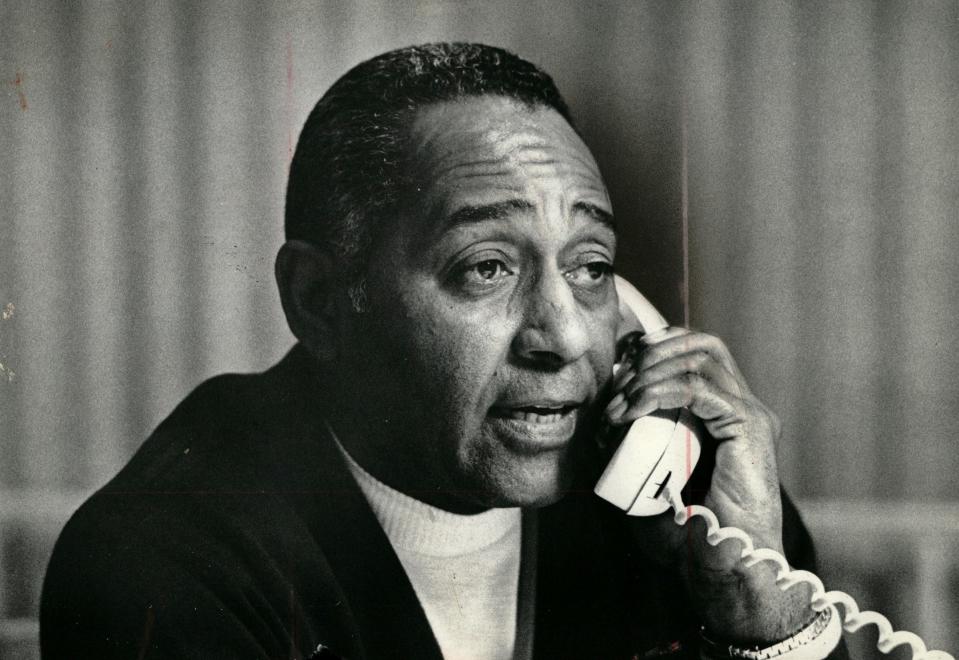
Though much smaller in stature than Sanders, who stood 6 feet 4 inches tall, Robinson, as a part-time scout, made a sizable contribution to the Lions during the same time he was better known as a basketball coach at Miller, Cass Tech and Pershing high schools in Detroit; and at Illinois State University, where, in 1970, he became the nation’s first Black Division 1 college basketball head coach and helped former Detroit Pistons coach Doug Collins become the first pick in the 1973 National Basketball Association draft. Robinson also would later shine as a top scout during the championship years for the Pistons franchise, where Robinson retired in 2003 at the age of 92 as the assistant to the president of basketball operations. Still, Robinson’s football journey was significant in its own right.
“Will Robinson helped make the Pistons teams that won NBA championships, but he certainly helped the Lions as well when he brought in players like (cornerback) Lem Barney (a second round Lions draft pick in 1967),” said John Telford, who coached some of the top track and field athletes in the city at Pershing High School during the 1960s at the same time Robinson was winning basketball championships — including two state titles — at the school. Oh yeah, Robinson was doing all of that while also scouting for the Lions.
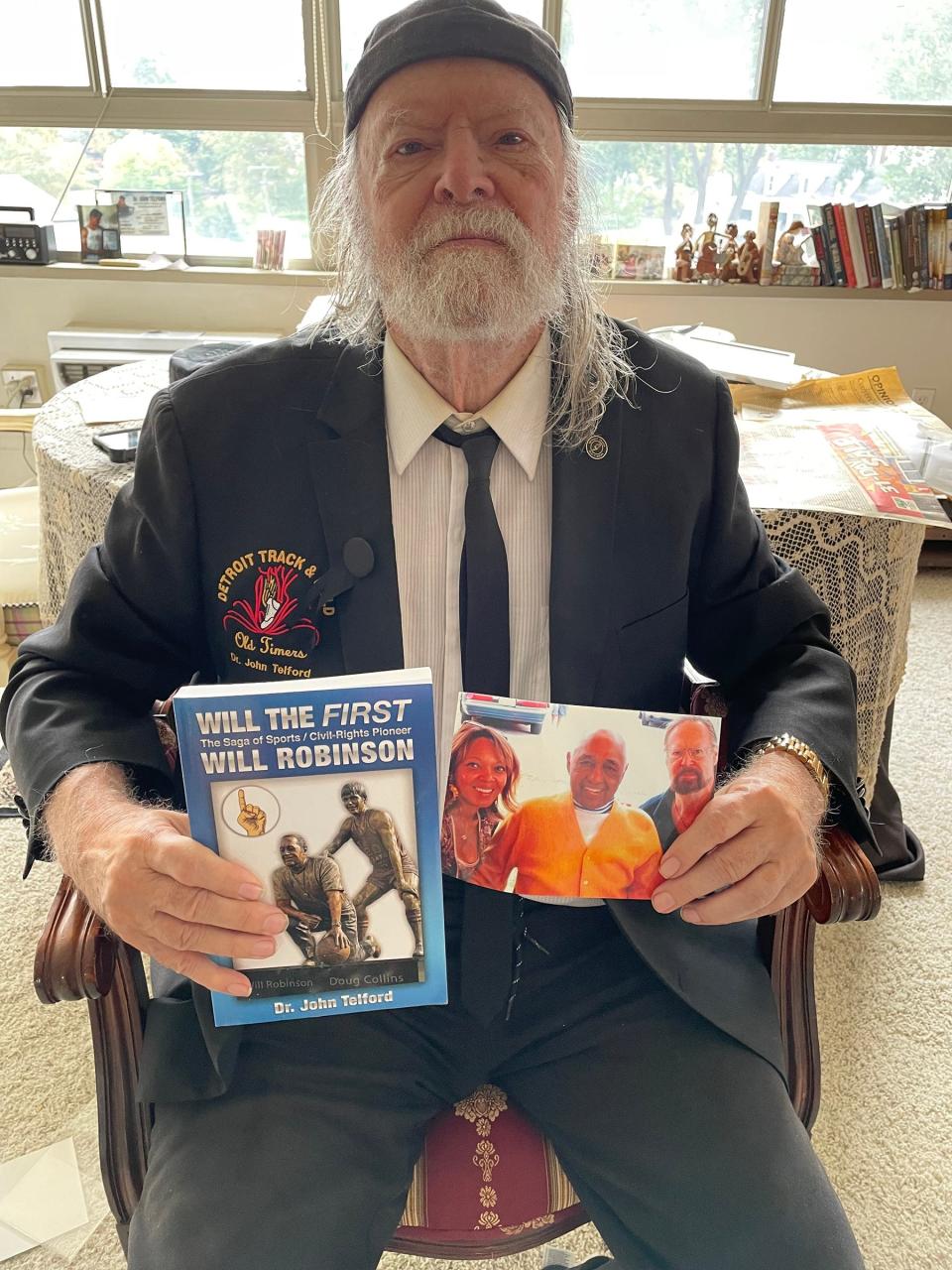
As Telford spoke last Thursday morning from his home in the River House Co-Op, on a table nearby was a book he authored titled “Will The First: The Saga of Sports/Civil-Rights Pioneer Will Robinson” published in 2015. Within the book is a list of former Lions that Robinson was known to have scouted, including Pro Football Hall of Famers Barney and Charlie Sanders; running back Mel Farr; defensive back Levi Johnson; running back Dexter Bussey; defensive lineman Jim Mitchell; running back Jim Hooks and more.
Another name in the book is Roger Brown, who, before becoming a Pro Bowl defensive tackle for the Lions and a member of the original Fearsome Foursome with Alex Karras, Darris McCord and Sam Williams, was sighted by Robinson while playing at Maryland State College (now Maryland Eastern Shore). Brown, who stood 6-foot-5 and tipped the scales at about 300 pounds as a player, was selected by the Lions in the fourth round of the 1960 NFL Draft.
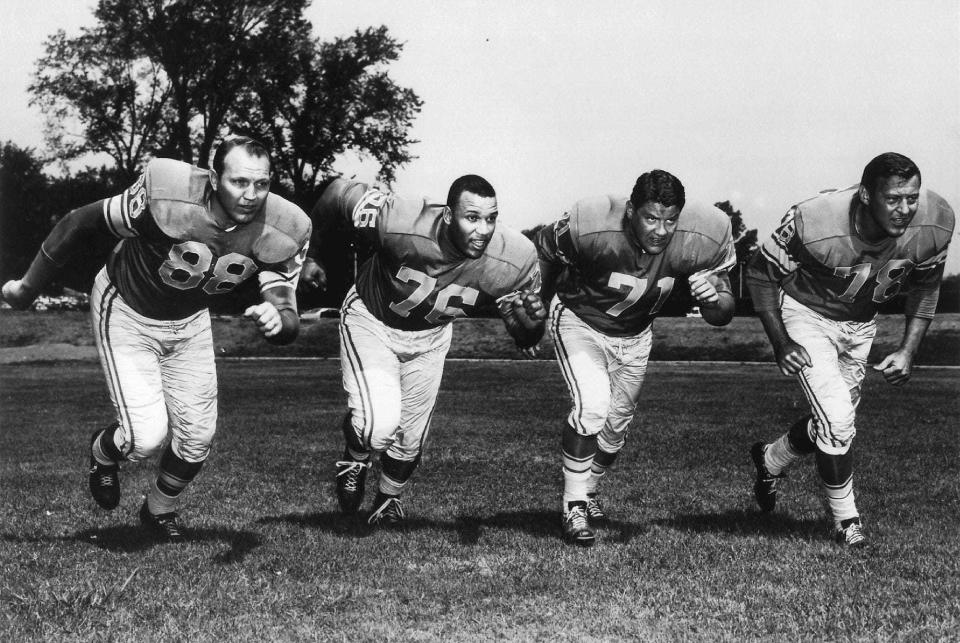
And upon Brown’s arrival in Detroit, he quickly made a new fan away from the field.
“I can still remember the sight of our garage door opening and out came Roger Brown, smiling on a Harley as he rode down our driveway on Normandy Street,” recalled the 81-year-old William Robinson Jr., who has fond memories of attending Lions training camps with his dad, and who was well acquainted with Brown. “My father and Buddy Young, who was a star with the Baltimore Colts, were the first Black scouts and they helped to change the complexion of the NFL.”
On Thursday afternoon from his home in Cary, N.C., William Robinson Jr. explained that his father was a frequent visitor to Historically Black Colleges and Universities (HBCUs), including Brown’s alma mater, and Jackson State, where Barney starred before earning NFL Defensive Rookie of the Year honors with the Lions.
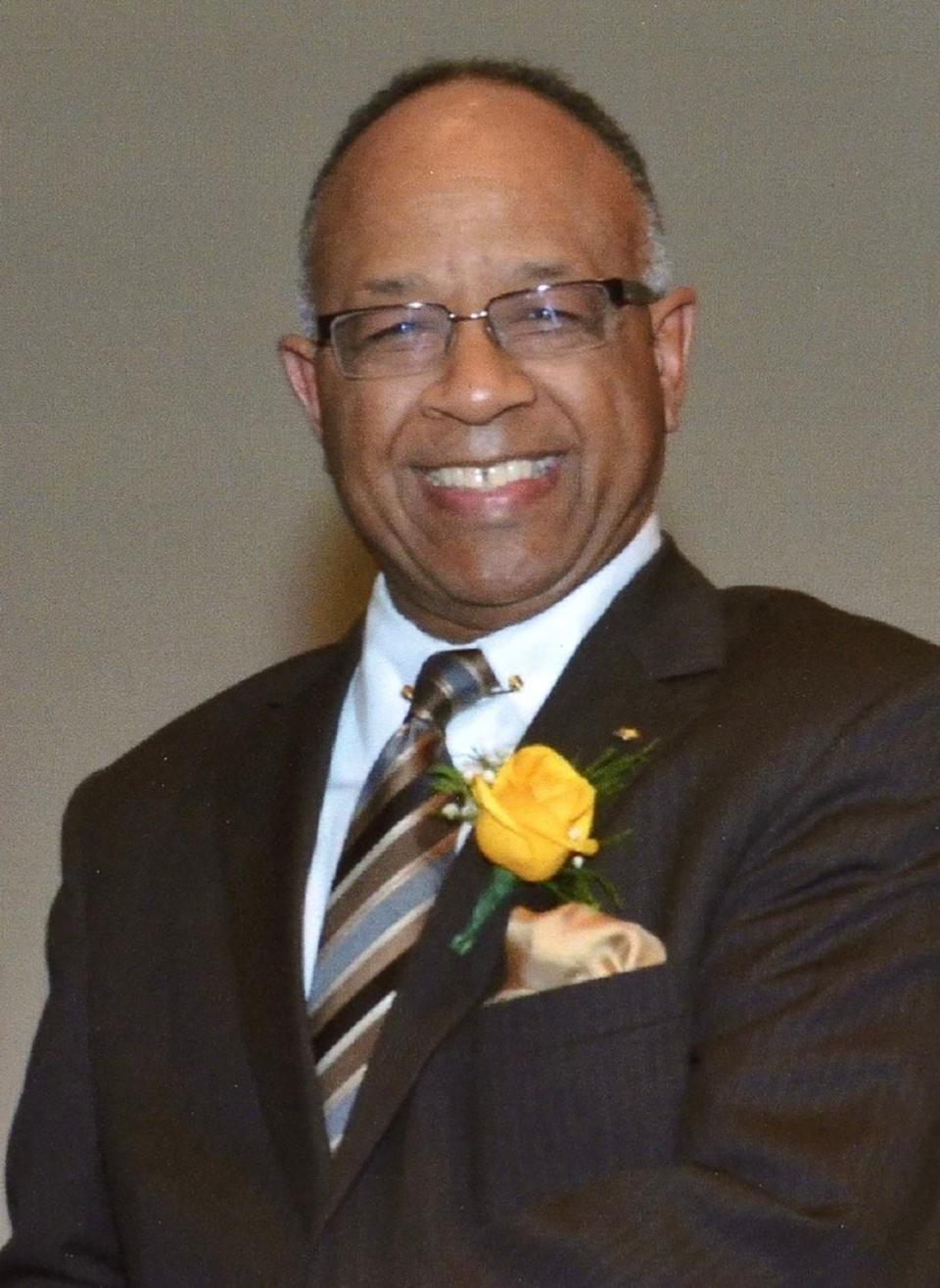
“During my father’s first 10 years at Miller High School (beginning in 1943), where he coached football and basketball, he sent many students to HBCUs,” said William Robinson Jr., who cited former Lions coach Buddy Parker, a 2024 finalist for induction into the Pro Football Hall of Fame, along with former Lions general manager Russ Thomas, for providing the opportunity that allowed his father to scout for the team over a span of 22 years. “So, my father was at the HBCUs and once the players he scouted joined the Lions, the relationships continued. When Lem Barney first arrived in Detroit and didn’t have a suit, my father took care of him, and they remained close. And Lem was one of the speakers at my father’s funeral.”
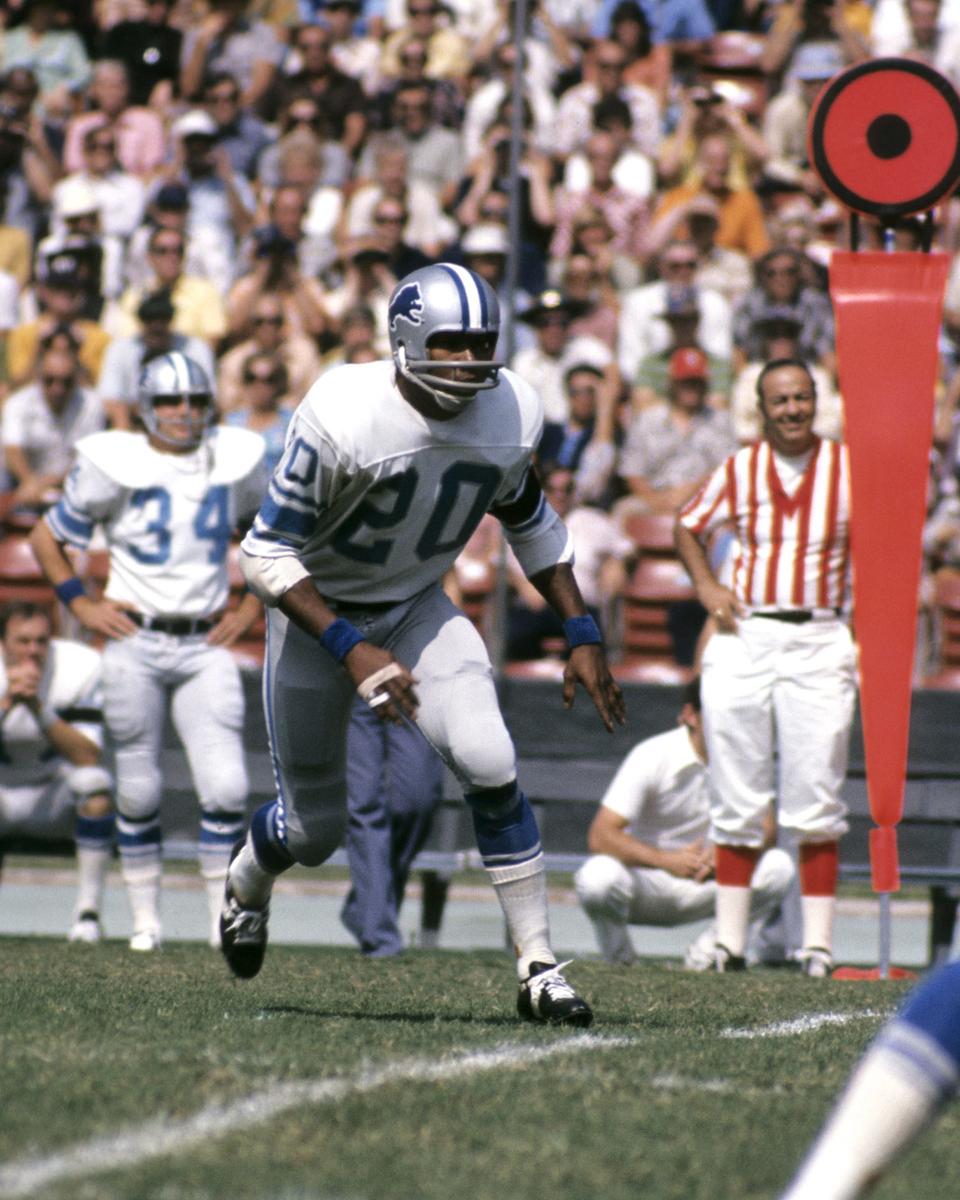
In some instances, Will Robinson’s scouting of players at HBCUs, long before the NFL’s full Southern expansion, led to encounters that transformed lives beyond football. Such was the case when Robinson had his eyes on a center playing for the then-Tuskegee Institute in a championship game against Alabama State on Thanksgiving Day 1967.
“A famous sports writer with the Pittsburgh Courier came up to me after the game and told me Will Robinson was watching from the press box,” former Detroit Public Schools general superintendent David Snead, who graduated from Cass Tech in 1961, recalled. “I didn’t even think Will Robinson remembered me from Cass (Tech) because I only played junior varsity basketball for him. But the sports writer said he kept telling everyone in the press box to ‘Watch the center,’ and then I made the block that allowed us to score the winning touchdown on a quarterback sneak.”
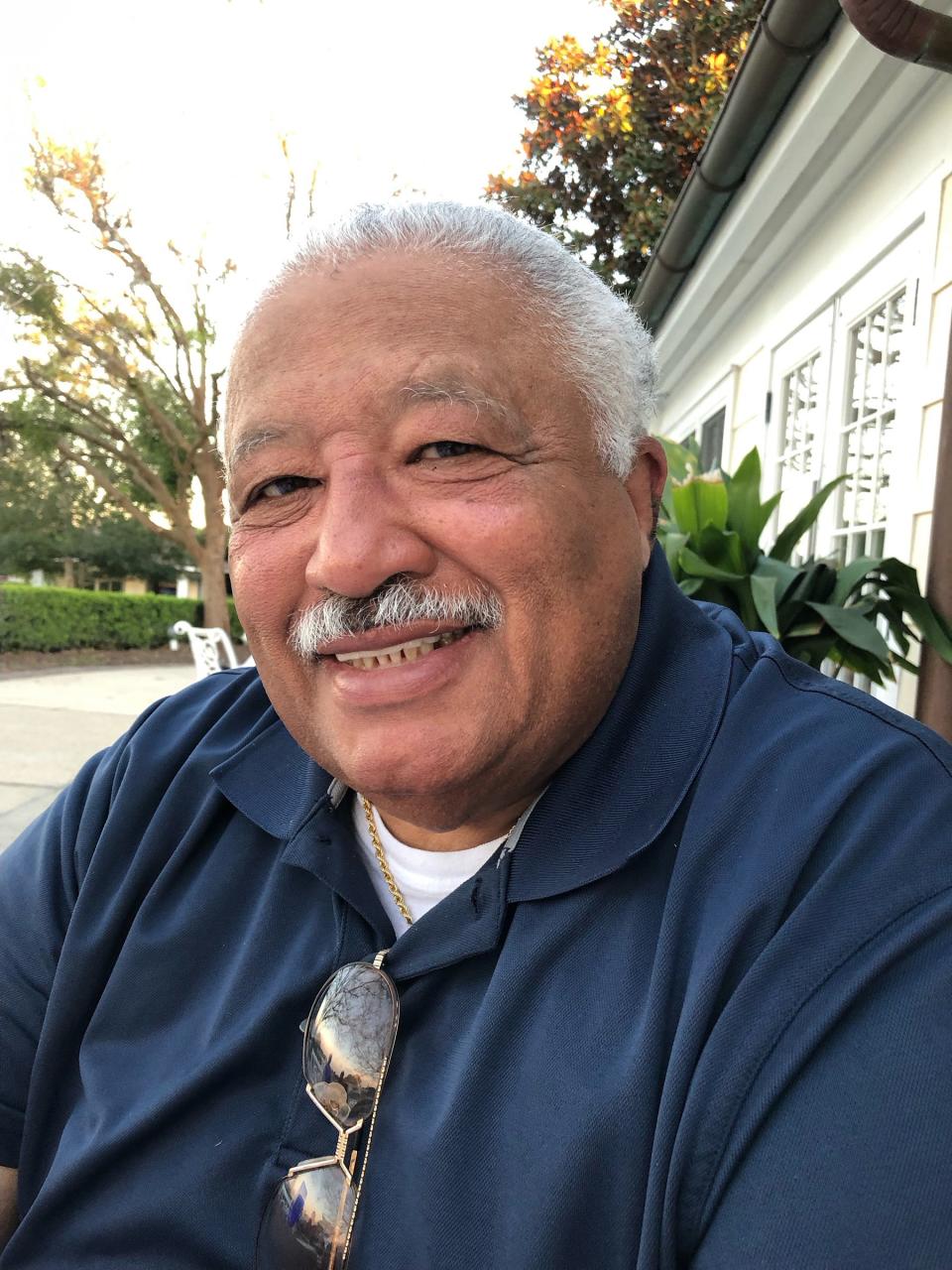
Because of what Will Robinson said in the press box, Snead says, he was selected to the 1967 Pittsburgh Courier All American Team, which honored the best players in the nation from HBCUs. But Snead, who spoke Thursday afternoon from The Villages, Florida, says he received an even larger prize, in the form of Will Robinson’s wisdom, when Robinson persuaded Snead not to accept an offer “halfway around the world” to teach and coach in Stockton, California. That decision ultimately launched Snead’s educational career in Detroit. The decision also brought Snead’s Tuskegee quarterback, James Reynolds, to Detroit. And Reynolds would later make his mark in his new home by inspiring student-athletes at Martin Luther King High School, where he became a legend as a football coach. With help from Will Robinson, Snead says he and Reynolds got their starts as educators and coaches in Detroit at Pershing High School.
In his book, Telford filled more than 300 pages with supporting references as he attempted to chronicle the life of Will Robinson and the many lives he touched. But on Thursday morning, Telford attempted to sum up what his friend’s life represented through a few carefully chosen words.
“He was an indomitable man and a righteous man,” Telford said of Will Robinson, who once led his high school golf team in Steubenville, Ohio, to a state championship despite not being able to play on the course at the same time as the white golfers. “This little guy, about 5-feet-8, was indomitable. He led that high school team to a state football championship as a quarterback. He was a wrestler; a gymnast; he ran track and played baseball.
“And he was always a teacher, even when he worked for the Lions and the Pistons. In everything he did, Will Robinson used sports to teach.”
Scott Talley is a native Detroiter, a proud product of Detroit Public Schools and lifelong lover of Detroit culture in all of its diverse forms. In his second tour with the Free Press, which he grew up reading as a child, he is excited and humbled to cover the city’s neighborhoods and the many interesting people who define its various communities. Contact him at: stalley@freepress.com or follow him on Twitter @STalleyfreep. Read more of Scott's stories at www.freep.com/mosaic/detroit-is/. Please help us grow great community-focused journalism by becoming a subscriber
This article originally appeared on Detroit Free Press: Will Robinson's scouting helped shape Detroit Lions and Pistons

